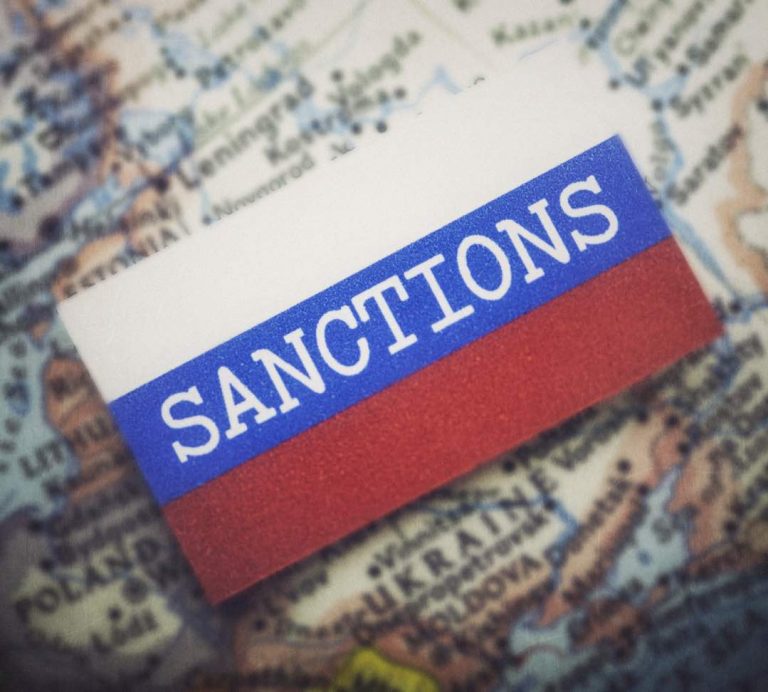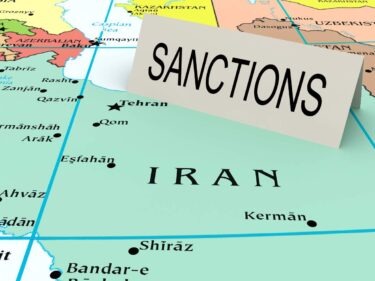
OFAC sanctions whistleblower lawyers, who are crucial in guiding individuals through legal procedures, ensuring compliance, and securing the maximum legal benefits.
Whistleblower Rewards for Reporting Sanctions Evasion
The Anti-Money Laundering Whistleblower Improvement Act of 2022 amended the Anti-Money Laundering Act (AMLA) to require the Department of the Treasury to pay awards to whistleblowers for voluntary disclosures of original information that results in the collection of penalties above $1 million for a violation of U.S. sanctions.
A whistleblower who reports original information about sanctions evasion can obtain an award of 10% to 30% of the collected monetary sanctions. Sanctions evasion whistleblowers can report anonymously if represented by an attorney. The AMLA also provides a remedy for whistleblowers that suffer whistleblower retaliation.
Call us today to find out more about whistleblower incentives and protections and how we can help you report sanctions evasion and qualify for a whistleblower award. You can contact us by phone or via WhatsApp or Signal at 202-930-5901 or 202-262-8959.
See our guide to the OFAC Whistleblower Reward Program: Strengthened Enforcement of Sanctions Evasion Enhances Incentives for Sanctions Whistleblowers and the Whistleblower Lawyer’s Guide to the Anti-Money Laundering Whistleblower Program.
Guidance on OFAC’s Enforcement and Compliance Policies
- OFAC Enforcement Guidelines
- Memoranda of Understanding Between OFAC and Bank Regulators
- Guidance on Submitting Electronic Documents to OFAC Enforcement
OFAC Sanctions Evasion Whistleblower Reward Program
Reporting a Violation of U.S. Economic Sanctions Can Qualify for a Whistleblower Award Under AMLA or SEC Whistleblower Reward Programs
 Violating U.S. economic sanctions can implicate violations of disclosure duties under federal securities laws and therefore whistleblowing about sanctions evasion can potentially qualify for an SEC whistleblower award.
Violating U.S. economic sanctions can implicate violations of disclosure duties under federal securities laws and therefore whistleblowing about sanctions evasion can potentially qualify for an SEC whistleblower award.OFAC Sanctions Evasion Whistleblower Rewards Law Firm
The sanctions evasion whistleblower lawyers at Zuckerman Law have experience representing sanctions evasion whistleblowers and one of our attorneys is also a Certified Public Accountant and Certified Fraud Examiner.
Experienced and effective sanctions evasion whistleblower attorneys can provide critical guidance and effective advocacy to whistleblowers to increase the likelihood that they get the maximum award from the FinCEN Whistleblower Program.





U.S. News and Best Lawyers® have named Zuckerman Law a Tier 1 firm in Litigation – Labor and Employment in the Washington DC metropolitan area.

For more information about sanctions evasion whistleblower rewards and bounties, contact the whistleblower lawyers at Zuckerman Law at 202-262-8959.
Click here to read reviews and testimonials from former clients.
How is the OFAC application process?
A CRS report titled Enforcement of Economic Sanctions: An Overview provides the following summary of OFAC’s enforcement process:
“If OFAC suspects that a person or entity may be acting in violation of economic sanctions, it may open enforcement proceedings. Based on the evidence, OFAC may issue a finding of no violation, a request for further information, a cautionary letter, a finding of a violation, a finding of a violation with civil monetary penalty, or a criminal referral. Should OFAC have reason to believe that the sanctions violation may be ongoing or recur, it may also issue a cease-and-desist order. Where relevant, OFAC may also revoke, suspend, modify, withhold, or deny licenses to engage in certain transactions.
If OFAC imposes a monetary penalty, the amount varies depending on the relevant statutory authority and an
evaluation of the circumstances. To calculate the penalty, OFAC first determines the “base amount” by considering whether the violation qualifies as “egregious” and whether the individual voluntarily self-disclosed the violation. The egregiousness determination is based on a consideration of factors including the violator’s willfulness, harm to the sanctions program’s objectives, and individual characteristics (e.g., commercial sophistication). Then OFAC considers aggravating and mitigating factors, including whether the violator took remedial action or cooperated with OFAC’s investigation to calculate a final penalty. Should OFAC believe that a particular case might warrant criminal penalties, it may refer the case to DOJ. Violators face civil penalties of up to $250,000 (which, as annually adjusted under the Federal Civil Penalties Inflation Adjustment Act of 1990, now amounts to $368,136) or “an amount that is twice the amount of the transaction that is the basis of the violation.” See Economic Sanctions Enforcement Guidelines. Seventy-five percent of the civil penalties and net proceeds of forfeitures related to violation of sanctions and other criminal provisions involving designated state sponsors of terrorism go into the United States Victims of State Sponsored Terrorism (USVSST) Fund. Otherwise, civil fines are deposited into the General Fund of the U.S. Treasury. Proceeds of the remaining 25% and most other civil forfeitures for sanctions violations are deposited into the DOJ Asset Forfeiture Fund or the
Treasury Forfeiture Fund.”
OFAC Enforcement and Compliance Policies
- A Framework for OFAC Compliance Commitments
- OFAC Enforcement Guidelines
- Memoranda of Understanding Between OFAC and Bank Regulators
- Memorandum of Understanding Between OFAC and the State of Delaware Department of Justice
- OFAC Office of Compliance and Enforcement Data Delivery Standards Guidance: Preferred Practices for Productions to OFAC
- Advisory and Guidance on Potential Sanctions Risks Arising from Dealings in High-Value Artwork
- Sanctions Compliance Guidance for the Virtual Currency Industry
- Sanctions Compliance Guidance for Instant Payment Systems
- Tri-Seal Compliance Note: Voluntary Self-Disclosure of Potential Violations
- Quint-Seal Compliance Note: Know Your Cargo: Reinforcing Best Practices to Ensure the Safe and Compliant Transport of Goods in Maritime and Other Forms of Transportation
- Tri-Seal Compliance Note: Obligations of foreign-based persons to comply with U.S. sanctions and export control laws











